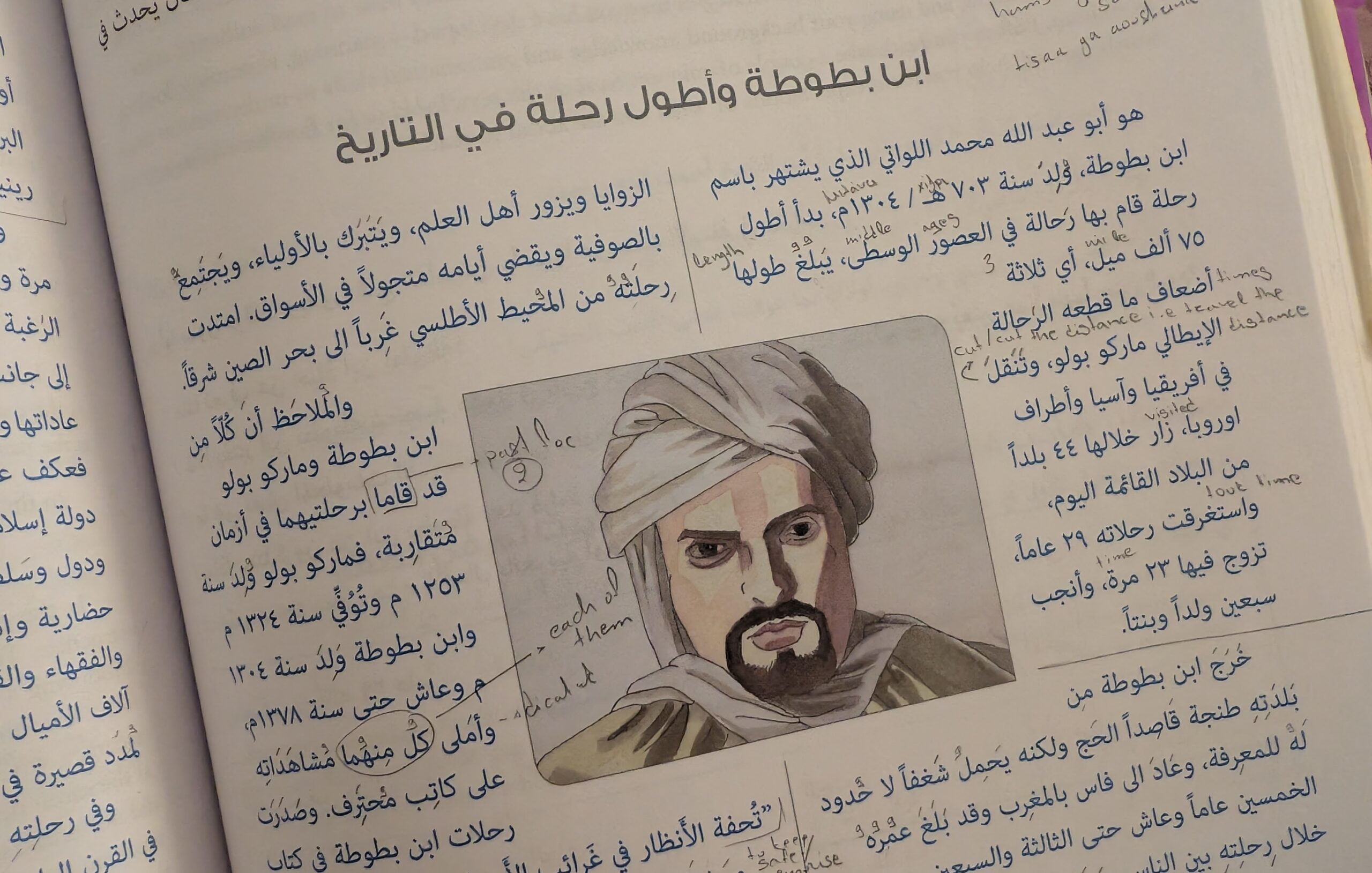One of the hardest things with Arabic for a learner is the absence of the harakat.
The harakat are short vowel marks (that appear above or below the other letters) and they indicate a sound (a, i, ou, a skipping or a doubling of the consonant).
For example:
كَتَبَ (kataba) → with full harakat
كتب → without harakat
The Holy Quran has all the harakat (to avoid any chance of a misunderstanding and to help the reader to accurately recite) but in learners’ books you get the harakat only the first time you see a word. Thereafter the word is considered known and you have to remember what the word sounds like without the harakat. In the same manner, there are no harakat in any Arabic newspapers, texts, subtitles etc. In other words, written Arabic uses only consonants and long vowels (aa, ii, ouou) – for the rest, you’re on your own.
What makes it even more difficult is that the same printed word can in reality be totally different depending on grammar and context – for example:
كتب could be:
kataba (he wrote)
kutiba (it was written)
kutub (books)
So it’s not enough to learn the words, you also have to work really hard in learning other words, get context quickly and have enough grammar.
When we started, my teacher assured me that eventually I will just know, which I seriously doubted.
Two years later, turns out she was right. I can read (few) words and recognise them in sentences without any issue but I do have to admit the time, effort, blood, sweat and tears this has taken me.
I have a long, very looooong way to go to get good in this language. But today, I asked an AI agent to write some sentences for me and I can’t even begin to explain my excitement with actually reading and understanding.



